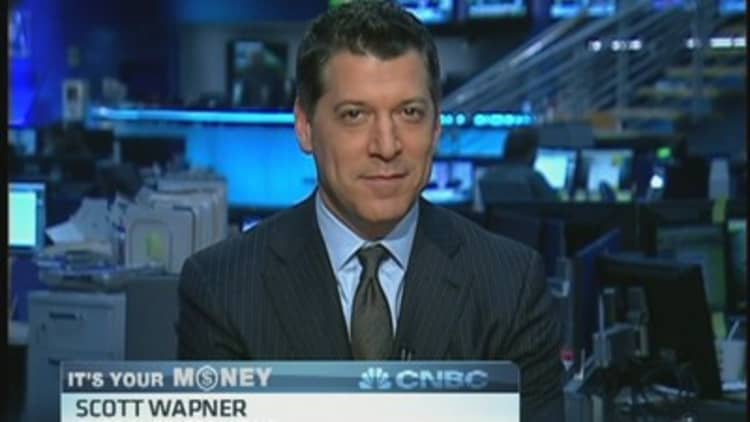It's too bad that over two days of congressional testimony this week Federal Reserve Chairman Ben Bernanke wasn't asked an important question about Fed policy and deficits; and too bad that the chairman didn't go out of his way to answer a question that wasn't asked.
The questions are these: Is the Fed forced to take more risks now because the federal government is cutting back? And, if so, what are the costs of the Fed stepping up to do more when the fiscal side does less?
Bernanke strongly warned that the economy is in poor shape to withstand additional government spending cuts. He repeatedly came back to estimates that the fiscal reductions enacted recently would shave about 1.5 percent points off growth this year.
"We do not have the ability -- we can all disagree on how powerful these measures are, and I do think they are effective, but I don't think that they can offset the 1.5 percentage points of fiscal restraint we are seeing this year," Bernanke said.
He continued: "In terms of the near-term recovery, I think there is a sense in which monetary and fiscal policy are working at cross-purposes."
This suggest a trade-off, although an imperfect one: as the fiscal side reduces spending, the fed has to increase its monetary easing, or at least maintain them at a higher level.
And there are risks to the policy. Not only is the Fed unsure about the quantitative effects of Quantitative Easing - that is, how much easing they get for a given quantity of asset purchases - it is also unsure of the process by which they unwind their purchases.
(Read More: The Federal Reserve's Printing Press Can't Go On Forever )

So one of the unasked questions is this: Mr. Chairman, where are the risks greater? Is it better for the Fed to buy more assets or for the federal government to run higher deficits and not cut spending now?
I strongly suspect that Fed policy is more wide open because fiscal policy for the past several year has been contractionary. And I believe the Fed will be forced to do more QE this year because of the sequester. I also think the risk is greater over at the Fed than it is on the fiscal side.
(Read More: We've Seen This 'Sequester' Movie Before)
That's likely why the Fed keeps hammering the fiscal issue. In a speech last month, Fed Vice Chair Janet Yellen suggests the opposite of what the consensus firmly believes: that government spending, rather than surging, has actually been falling and a drag on growth for most of this recovery.
"In the year following the end of the recession," Yellen said, "discretionary fiscal policy at the federal, state, and local levels boosted growth at roughly the same pace as in past recoveries… But instead of contributing to growth thereafter, discretionary fiscal policy this time has actually acted to restrain the recovery."
So whatever the effects of the sequester --- some say they will be worse than others --- add another one: more responsibility for the Fed to keep boosting aggregate demand with experimental policies. The irony, of course, is there's a lot of overlap among the camps who say the Fed should cutback QE and the camps clamoring for government spending cuts now.
(Read More: Time to End the 'Monetary Ritalin': Fed's Fisher )
By CNBC's Steve Liesman; Follow him on Twitter: @steveliesman


